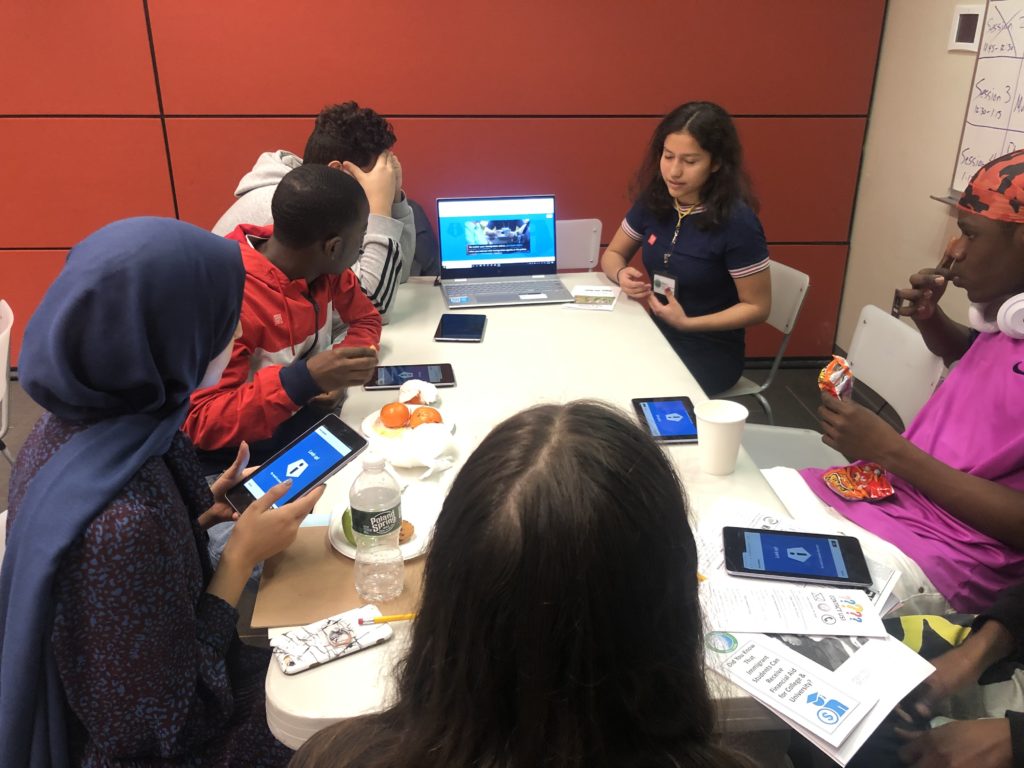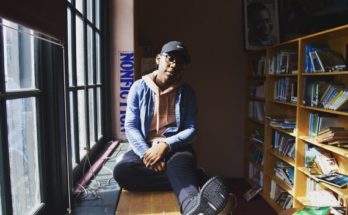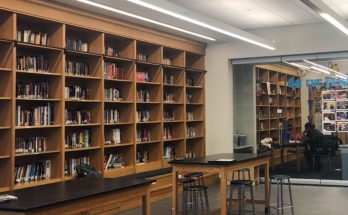
The road to college has always posed enormous challenges for the 349 brand new immigrant students at Brooklyn International High School. Visa uncertainties, financial instability, language and cultural barriers add to an already stressful college application process.
To help the vast majority get into college, the school has built a comprehensive post-graduation program into its curriculum. The school’s guidance counselor, Ken Kastenbaum, who has been teaching there for 21 years, leads mandatory college preparation classes, one-on-one sessions, and workshops with families.
But ever since public schools were ordered closed in mid-March due to the coronavirus pandemic, that process has become much harder. The personalized interactions students normally get from being in school has made it difficult for Kastenbaum to check if they are on track with their college applications. He is particularly concerned about the ones he has been unable to get in touch with.
“Communication has been the biggest challenge,” he said. And if he cannot get in touch with them, he cannot help them.
On a recent Wednesday in April, Kastenbaum and his colleague, Grace Dang, waited in their apartments for students to trickle into their Zoom room for Senior Seminar, their weekly class about the basics of college preparation and life.
The names that filled up on the screen hinted at the diversity of the community at the downtown Brooklyn school. Many of the students were new arrivals to America just three years earlier, speaking very little English. The school is part of the Internationals Network for Public Schools, which supports teenagers who have been in the United States for fewer than four years. Here, students come from over 30 countries, speaking about 35 languages.
In spite of these challenges, 74 percent of its students graduate in four years. With an additional two years, that number rises to an impressive 96 percent, 5 percent more than the city-wide average.
Orubba Almansouri, an alumna from the school who graduated in 2010, said it is the relationships and the personalized approach that help the students succeed. “I may not remember all the dates from my literature classes or novels,” she said. “But I remember how to navigate different things, how to deal with certain issues. I was trained for the outside world.” After obtaining her Master’s degree from New York University, Almansouri returned to the school as an education coordinator.
For students like Shimla S. this support is crucial. (She requested that her full name not be shared due to her uncertain immigration status). A study published by the U.S. Education Department’s National Center for Education Statistics in 2018 showed that a student’s decision whether to go college or not is significantly influenced by their parents’ backgrounds.
Shimla had moved to the United States from Bangladesh three years earlier with her parents and two younger sisters. “Most of us are first-generation who are going to college,” said Shimla in an interview over the phone. “My parents don’t know about this type of stuff and we basically don’t have any knowledge about how to do those applications or work on those letters.”
At Brooklyn International, Kastenbaum and Dang play that surrogate role and are often the students’ main pillars of support when it comes to navigating the college admissions system. Normally, the seniors would go to Kastenbaum’s office or look for Dang in the school library, where she keeps a stack of folders containing all their records on her desk.
In addition to the weekly Senior Seminar, Kastenbaum and Dang work tirelessly to follow up with the seniors individually to discuss their post-schooling plans and make sure their documents are in order. Dang said that the financial aid and scholarship applications are also often the most tedious and complicated part of the college application process, which can stymie many students, especially aspiring first generation college-goers.
And across the school, every teacher mentors three to four senior students and guides them with their final year projects and personal statements.
In fact, conversations about post-schooling options begin at eleventh grade. That is when Kastenbaum and Dang touch base with the other teachers to assess each student’s progress.
“We ask the teachers who they think might be heading towards two-year or four-year programs, or who might be more interested in vocational training,” said Dang.
Those conversations are important so that the staff can match students to the right internship opportunities. In eleventh grade, every student is required to do a 10-week internship that takes place from March to June. The internship gives students the opportunity to explore careers they might be interested in, and the experience counts as credits towards high school graduation. According to Principal Kathleen Rucker, it is a unique aspect of the curriculum at Brooklyn International that not every International school in the network has.
But remote learning has changed these personalized interactions. Shimla said she now calls or emails Dang frequently, who responds to her even on the weekends. And the transition online has not been easy for every student. Kastenbaum said the strongest students have been able to manage independently, but it has been challenging reaching the ones who have not been showing up for online classes. Previously, he could go into classrooms to check on students directly. Now all he can do is to use email, Zoom, Google Meet, and phone calls and hope they would respond.
The coronavirus has presented another issue for the seniors at Brooklyn International: whether or not they should proceed with enrolling for the fall semester or wait until December or January for activities to resume normally. Many colleges have postponed their deadlines for decisions, giving students more time to consider their options. But Kastenbaum said he was more concerned that his students would not receive the support that is crucial for first-generation students if classes were still conducted virtually in the fall.
“Personally, I would wait,” Kastenbaum said. “I think it’s best that students wait until classes resume normally. Our students need more help and they wouldn’t get that kind of help and support online.”
On the Zoom video call, Kastenbaum and Dang checked in with every student on the call on where they were with their college applications, and whether or not they wanted to start in the fall or wait till next year.
“Grace and I wanted you to know that you have the option of deferring your admission until January,” Kastenbaum told the students. “Let’s say the colleges are doing their classes online in the fall. But you don’t want to be studying online, so you have the option to wait. That’s something we can talk about in our individual conversations. You don’t have to decide now, but you have that option.”
One student who has been accepted to LaGuardia Community College, told Kastenbaum and Dang that she wanted to wait. Another, who is planning to accept her place at the City College of New York, said she was okay with starting online.
“If you start in December, would that affect when you graduate?” asked another student.
“Yes, but the more important question is whether you will be more successful online or in person,” Kastenbaum said. “If you feel you can learn online for a semester, then you can try.” He also told the student to consider the costs. “It’s not free like high school.”
Studying remotely was already taking a toll on some of the students, which portends the challenges that many of the first-generation immigrant students at Brooklyn International High School might face if they opt to start college virtually in the fall. One student dropped out of the Zoom call before Kastenbaum and Dang could get to him, and Kastenbaum said they were still missing several students who did not show up to the two Zoom sessions they had scheduled that Wednesday.
Shimla said the situation has become increasingly challenging for her and her classmates. “People are losing their energy,” Shimla said. “Even I was complaining to my teachers that I don’t have any motivation to work. My teachers are saying do your best, we’re almost finished. They’re trying to energize us, but it’s hard.”
Kastenbaum said Shimla is a high-performing student who takes initiative and does her own research. “Imagine what other students are going through,” he said.
The future is uncertain but Kastenbaum said they have to keep the outreach and classes going. “The goal is really to get them to graduate,” he said.



